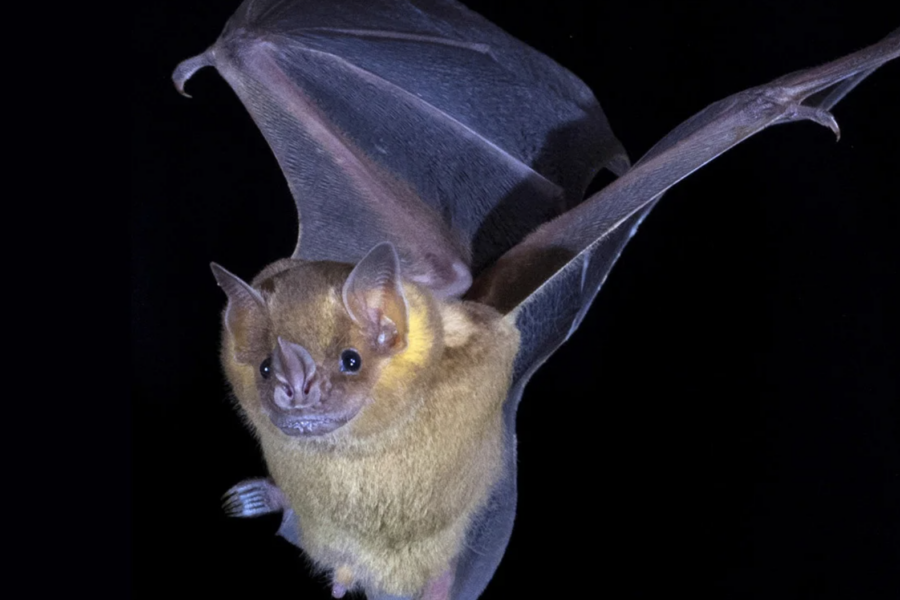Bats have acquired remarkable traits throughout their evolution. They’re the only mammals that can fly, and they live much longer than other animals their size. But perhaps most impressive is their robust immune system. It protects bats from viruses that wreak havoc in humans, like COVID-19 or Ebola. It also keeps bats relatively cancer-free. How?
According to Cold Spring Harbor Laboratory (CSHL) scientists, it’s all in the genes.
Using samples collected in Belize with Nancy Simmons from the American Museum of Natural History, CSHL Professors W. Richard McCombie and Adam Siepel and postdoc Armin Scheben sequenced the genomes of the Jamaican fruit bat and Mesoamerican mustached bat. When they compared these sequences to other mammals, the team found that rapid evolution has streamlined bat genomes to defend against infection and cancer. McCombie explains:
“We didn’t know immune system genes were so positively selected in bat genomes. Bats have a number of very unusual things about them. They don’t respond to infections the way we do. In retrospect, it’s not surprising this difference in the immune system may be involved in both the aging and cancer response.”
The Jamaican fruit bat and Mesoamerican mustached bat belong to the world’s most ecologically diverse superfamily of mammals. McCombie, Siepel, and Scheben created complete genomes for both bats using new Oxford Nanopore sequencing technology. They then compared these sequences to 15 other bat and mammal genomes, including humans. This revealed an unknown shift in levels of two inflammatory protein-coding genes called interferon-alpha and –omega.
